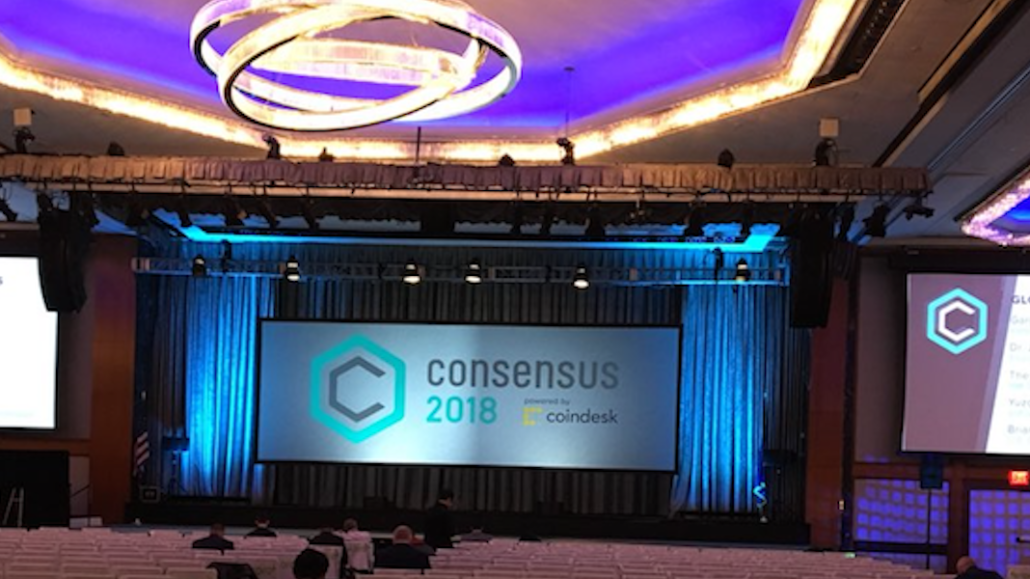Secure your place at the Digiday Publishing Summit in Vail, March 23-25

Consensus, the blockchain industry’s conference of the year, hadn’t even begun its general session when registration lines started snaking through the length of the New York Hilton Midtown’s ground floor lobby, multiple times.
It was illustrative of the crypto industry today: an oversold event that would devote the next three days to discussion and debate on distributed and decentralized systems — funny, if it wasn’t so frenzied.
A conference that began as a small 400-person event in 2015, when CoinDesk was still billing itself as an outlet for bitcoin (not blockchain) news, Consensus has turned into the place for crypto enthusiasts, crypto curious and the crypto hangers on. Top-billed speakers include James Bullard, president and CEO of the Federal Reserve Bank of St. Louis, Square CEO Jack Dorsey and Amber Baldet for three days of discussion about everything from the bitcoin mining boom to content monetization and neutrality to decentralized car networks. CoinDesk planned this year’s event for an audience of about 4,000. There are about 8,500 in attendance, which translates to about $17 million in ticket sales.
If crypto is the future of finance, it just looks like old finance.
More in Marketing

‘The conversation has shifted’: The CFO moved upstream. Now agencies have to as well
One interesting side effect of marketing coming under greater scrutiny in the boardroom: CFOs are working more closely with agencies than ever before.

Why one brand reimbursed $10,000 to customers who paid its ‘Trump Tariff Surcharge’ last year
Sexual wellness company Dame is one of the first brands to proactively return money tied to President Donald Trump’s now-invalidated tariffs.

WTF is Meta’s Manus tool?
Meta added a new agentic AI tool to its Ads Manager in February. Buyers have been cautiously probing its potential use cases.





